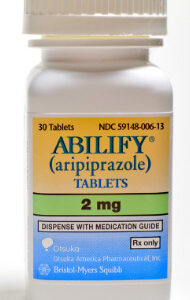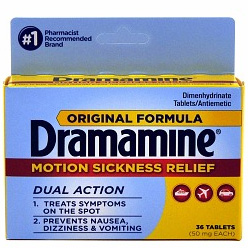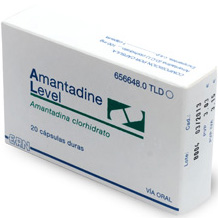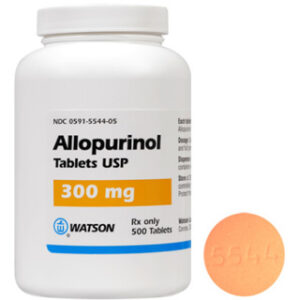Overview of Allopurinol
Allopurinol is a pharmaceutical agent predominantly utilized in the management of gout, a condition characterized by recurrent attacks of inflammatory arthritis. It acts as a xanthine oxidase inhibitor, reducing the production of uric acid, a substance that, at high concentrations, is responsible for gout attacks and the formation of kidney stones. By mitigating the accumulation of uric acid in the body, Allopurinol aids in relieving gout symptoms and preventing its complications.
Indications for Use
Allopurinol is primarily prescribed to treat chronic gout, hyperuricemia (elevated uric acid levels in the blood), and for the prophylaxis of gouty arthritis. It is also indicated in conditions where there is an excessive breakdown of body cells, such as tumor lysis syndrome during cancer treatments, which leads to an increased uric acid load. Additionally, it is used in certain patients with recurrent kidney stones where uric acid contributes to stone formation.
Dosage Guidelines
The prescribed dose of Allopurinol varies, contingent upon the patient’s specific condition, renal function, and uric acid levels. Typically, therapy commences with a low dosage to minimize adverse effects, which is then gradually escalated to achieve the intended outcome. It’s essential to follow the healthcare provider’s prescription, which often ranges from 100 to 300 milligrams daily for mild gout, with the possibility of increasing up to 800 milligrams for severe conditions.
Administration Schedule
Allopurinol is usually administered once daily. It is recommended to be taken after meals to reduce stomach upset. If the daily dose exceeds 300 milligrams, the dose should be divided into several smaller doses throughout the day. Consistent timing each day helps maintain even drug levels in the body for optimal effectiveness.
Contraindications
Allopurinol should not be used in individuals with known hypersensitivity to the drug. Caution is advised in those with renal or hepatic impairment, as altered dosing schedules may be required. It is also contraindicated in patients currently experiencing an acute gout attack, as it can worsen the symptoms.
Precautions and Warnings
Patients on Allopurinol therapy should be adequately hydrated to promote uric acid excretion and reduce the risk of kidney stone formation. Caution is warranted for those with a history of blood disorders, liver diseases, or renal insufficiency. Cases of severe skin reactions have been reported, and discontinuation of treatment is necessary at the first appearance of skin rash or other signs of hypersensitivity.
Interactions with Other Drugs
Allopurinol can interact with various medications, potentially altering their effects. These include certain diuretics, warfarin, azathioprine, and others. Informing the healthcare provider of all medications being taken, including over-the-counter drugs and supplements, is crucial to avoid untoward interactions.
Adverse Effects
Although many individuals on Allopurinol do not experience severe side effects, some may encounter gastrointestinal disturbances, rash, dizziness, or headaches. More serious effects, such as Stevens-Johnson syndrome, toxic epidermal necrolysis, or liver function abnormalities, though rare, require immediate medical attention.
Overdose Symptoms
The ingestion of Allopurinol in amounts exceeding recommended doses may manifest as nausea, vomiting, diarrhea, and dizziness. Substantial overdoses have the potential to cause considerable electrolyte disturbances and renal damage.
Emergency Procedures
In the event of an Allopurinol overdose, it is imperative to seek immediate medical intervention. Treatment will typically involve supportive measures, such as gastric lavage, administration of activated charcoal, and maintenance of hydration to promote renal elimination of the drug.
Special Populations
Particular vigilance is required when administering Allopurinol to special populations. Pediatric patients, pregnant or nursing mothers, and geriatric individuals may need adjusted dosages, and careful monitoring, as their physiological responses to the medication could differ significantly from the general adult population.
Monitoring and Laboratory Tests
Regular assessment of uric acid levels is essential to determine the effectiveness of Allopurinol therapy and to adjust the dose accordingly. Periodic blood tests, kidney function tests, and liver enzyme assessments may also be necessary to monitor for potential adverse effects.
Storage and Handling
Allopurinol should be stored at room temperature, away from excessive moisture and heat. Keep the medication in its original container, out of reach of children and pets. Ensure proper disposal of any expired or unused medication.
Patient Education
Informing patients about proper Allopurinol usage, potential adverse effects, and the importance of compliance with the prescribed regimen promotes safe and effective treatment outcomes. Patients should also be educated on lifestyle modifications, such as dietary changes and weight management, which can aid in reducing uric acid levels.
Frequently Asked Questions
Can Allopurinol be taken on an as-needed basis?
No, Allopurinol should be taken consistently as prescribed by a healthcare provider for optimal control of uric acid levels.
Will Allopurinol immediately relieve gout pain?
Allopurinol is not a pain reliever and does not provide immediate relief from gout attacks. It prevents future attacks by lowering uric acid levels over time.
Can alcohol be consumed while taking Allopurinol?
It is advisable to minimize alcohol intake, as it can increase uric acid levels and potentially worsen gout symptoms.
What should be done if a dose is missed?
If a dose is missed, it should be taken as soon as remembered unless it is almost time for the next dose. In that case, skip the missed dose and continue the regular schedule. Do not double the dose to catch up.
Is diet important when taking Allopurinol?
Yes, adherence to a low-purine diet can enhance the effectiveness of Allopurinol and aid in reducing uric acid levels.






Reviews
There are no reviews yet.